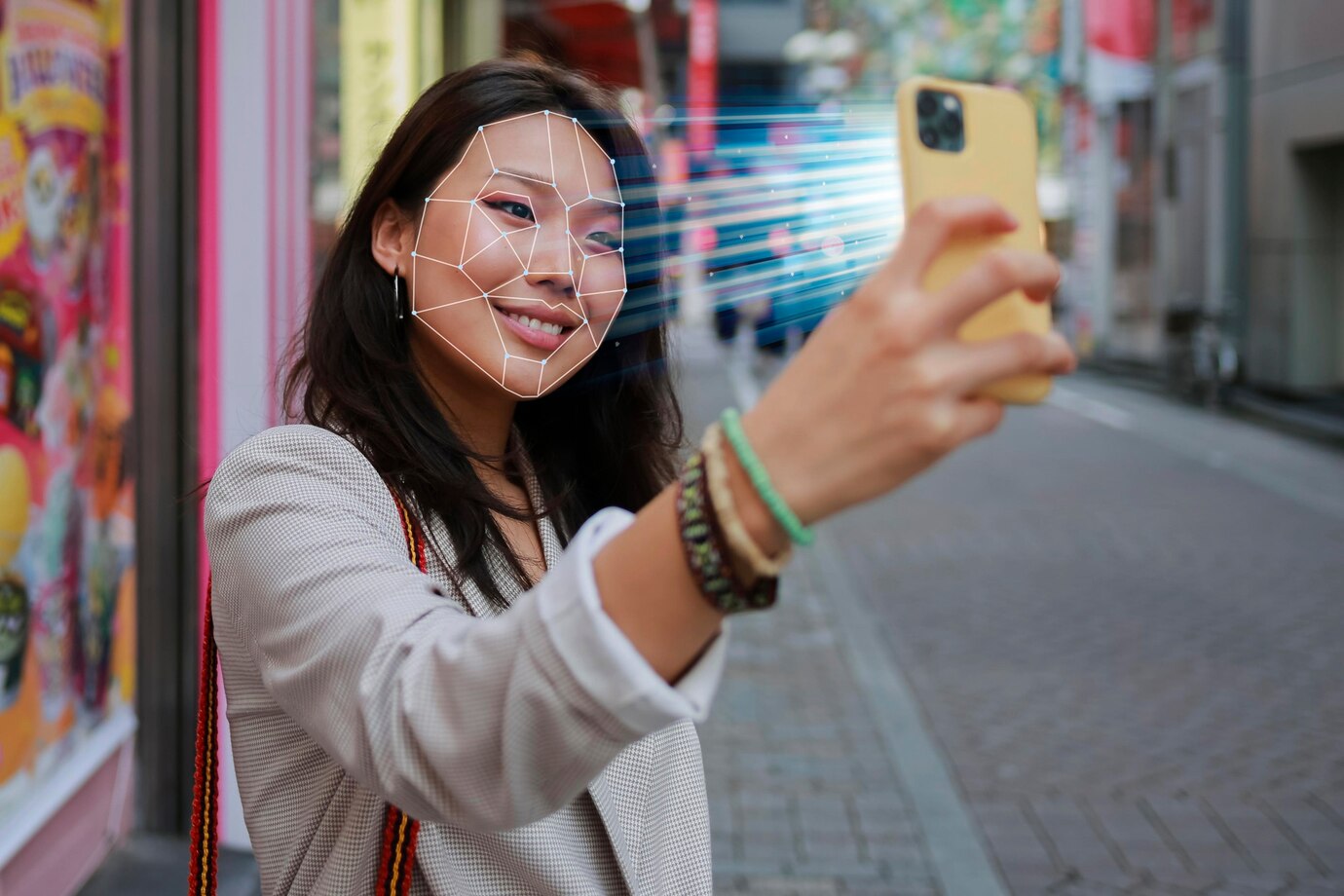Beyond the perfectly curated feeds and flawless selfies, Instagram’s impact on perception and identity is a complex issue. This article explores the psychological and social implications of the platform, examining how filtered realities and carefully crafted personas can influence self-esteem, body image, and social comparison. We’ll delve into the potential downsides of social media use while also acknowledging its positive aspects, offering strategies for mindful engagement and fostering a healthy relationship with the platform.
The Filtered Reality
Instagram, with its diverse range of filters, has transformed the way we present our lives visually. These filters, while enhancing the aesthetic appeal of photos, contribute to a filtered reality that extends beyond vibrant colors and contrasts. This altered visual narrative plays a pivotal role in shaping perceptions of beauty and perfection.
In the pursuit of the ‘perfect’ Instagrammable image, individuals often find themselves caught in a loop of comparison and self-evaluation. The curated nature of these images creates an unrealistic standard, leading to a distorted self-perception. This phenomenon is not merely about enhancing photos but rather about constructing a narrative of an idealized life.
This filtered reality extends beyond individual posts to entire profiles. As users scroll through meticulously curated feeds, they are exposed to a succession of perfected moments. The cumulative effect can be overwhelming, as it fosters a culture of comparison where users measure their own lives against the carefully curated highlight reels of others.
In essence, Instagram’s filtered reality is a double-edged sword. While it allows for creative expression and visually appealing content, it also contributes to a perception of reality that is far from authentic. Understanding this dichotomy is crucial in navigating the platform and managing the impact it has on individual perceptions and overall identity.
The Influencer Culture
The dynamic landscape of Instagram is significantly influenced by the rise of influencers, individuals who wield considerable impact on their followers through curated content and lifestyle endorsements.
Influence on Aspirations
Influencers play a pivotal role in shaping the aspirations and lifestyle choices of their followers. With carefully curated posts showcasing seemingly unattainable lifestyles, they set the bar high for what is considered ‘normal’ or ‘desirable.’ This influence extends beyond aesthetics, impacting choices ranging from fashion and travel to dietary preferences and product preferences. The aspirational nature of influencer content can create a sense of inadequacy among followers, influencing their perception of self-worth.
Authenticity vs. Curated Content
The influencer culture on Instagram blurs the lines between authenticity and meticulously curated content. While influencers often aim to connect with their audience on a personal level, the pressure to maintain a polished online presence can lead to a calculated curation of their lives. This dichotomy raises questions about the authenticity of the influencer-follower relationship. Users, in turn, grapple with the challenge of distinguishing between genuine moments and staged content, further complicating the dynamics of identity formation and perception within the platform.
Social Comparison
The pervasive culture of social comparison on Instagram plays a pivotal role in shaping user experiences and influencing perceptions of self and others. Here’s a closer look at the impact of this comparison culture:
- Constant Evaluation: Instagram users often find themselves in a perpetual cycle of evaluating their lives in comparison to the carefully curated content presented by others. This constant evaluation can lead to feelings of inadequacy, fostering an environment where users measure their worth based on likes, followers, and the perceived success of others.
- Pressure to Conform: The visually driven nature of Instagram creates an unspoken pressure for users to conform to prevailing trends and beauty standards. From lifestyle choices to aesthetic preferences, the desire to fit in with the perceived norms of the platform can influence individual behavior and self-perception.
- Fear of Missing Out (FOMO): The curated nature of Instagram feeds often portrays a heightened version of reality, emphasizing exciting experiences and picture-perfect moments. This can evoke a sense of FOMO among users who feel that their own lives are not as glamorous or exciting as those depicted on the platform, contributing to a distorted view of reality.
- Impact on Mental Well-being: Social comparison has been linked to negative mental health outcomes, including increased stress, anxiety, and feelings of isolation. As users engage in constant comparisons, striving to meet unrealistic standards set by others, the toll on mental well-being becomes a significant concern.
- Strategies for Mitigation: Recognizing the negative impact of social comparison is the first step towards fostering a healthier relationship with Instagram. Users can employ strategies such as limiting screen time, curating their feeds mindfully, and focusing on genuine connections rather than the pursuit of perfection.
In essence, understanding the dynamics of social comparison on Instagram is crucial for users to navigate the platform with a balanced perspective, fostering a positive digital experience that aligns with their individual values and well-being.
Algorithmic Influence
Instagram’s algorithmic influence shapes the content users encounter, dictating what appears on their feeds based on various factors. This algorithmic curation significantly impacts how individuals perceive themselves and others within the platform. Here’s a detailed exploration:
- Content Prioritization: The algorithm determines the order in which content appears on a user’s feed, prioritizing posts it believes will generate more engagement. This prioritization influences the visibility of certain content, shaping the narrative users are exposed to and impacting their perception of trends, lifestyles, and societal norms.
- Personalized Recommendations: Instagram’s algorithm employs machine learning to analyze user behavior, tailoring content recommendations based on past interactions. While this customization aims to enhance user experience, it can inadvertently create echo chambers, reinforcing existing beliefs and preferences and limiting exposure to diverse perspectives.
- Impact on User Behavior: The algorithm’s emphasis on engagement metrics, such as likes and comments, can influence user behavior. Users may find themselves conforming to popular trends or creating content tailored to maximize algorithmic visibility, potentially altering their self-expression to align with what is deemed socially rewarding within the platform.
- Balancing Algorithmic Exposure: Understanding the algorithmic influence prompts users to strike a balance between organic self-expression and catering to the platform’s preferences. Being aware of the algorithm’s impact empowers users to curate their content mindfully, ensuring authenticity is not compromised in the pursuit of algorithmic validation.
- Algorithmic Evolution: Instagram regularly updates its algorithm, introducing new features and adjustments. Users need to stay informed about these changes to adapt their content strategy and maintain a nuanced understanding of how the algorithm shapes their digital experience.
In navigating Instagram’s algorithmic landscape, users can harness its potential for positive engagement while being mindful of its impact on their perceptions and behaviors. A strategic approach to content creation and consumption allows users to leverage the algorithm to their advantage without compromising the authenticity of their digital presence.
The Role of Likes and Comments
To comprehend the intricate dynamics of likes and comments on Instagram, let’s break down their multifaceted roles into a clear table before delving into the details.
| Aspect | Role | Impact |
| Validation Metrics | Likes and comments serve as validation metrics, indicating the perceived popularity and acceptance of a post. | Users often associate the number of likes and comments with the value and relevance of their content. A higher count may boost self-esteem and confidence. |
| Engagement Building | Likes and comments contribute to engagement, fostering a sense of community and connection between content creators and their audience. | Building a robust engagement enhances the visibility of posts, deepens connections with followers, and establishes a supportive online community. |
| Influence on Content | User engagement metrics influence the type of content creators share, shaping their digital persona and content strategy. | The pursuit of likes and comments can impact content authenticity, potentially steering creators towards trends or styles that generate more engagement, compromising genuine self-expression. |
In the realm of Instagram, the role of likes and comments extends beyond mere numerical metrics; they play a pivotal role in shaping the user experience and content creation strategies. Understanding these roles allows users to navigate the platform with a nuanced perspective, balancing the desire for validation with the preservation of authenticity.

